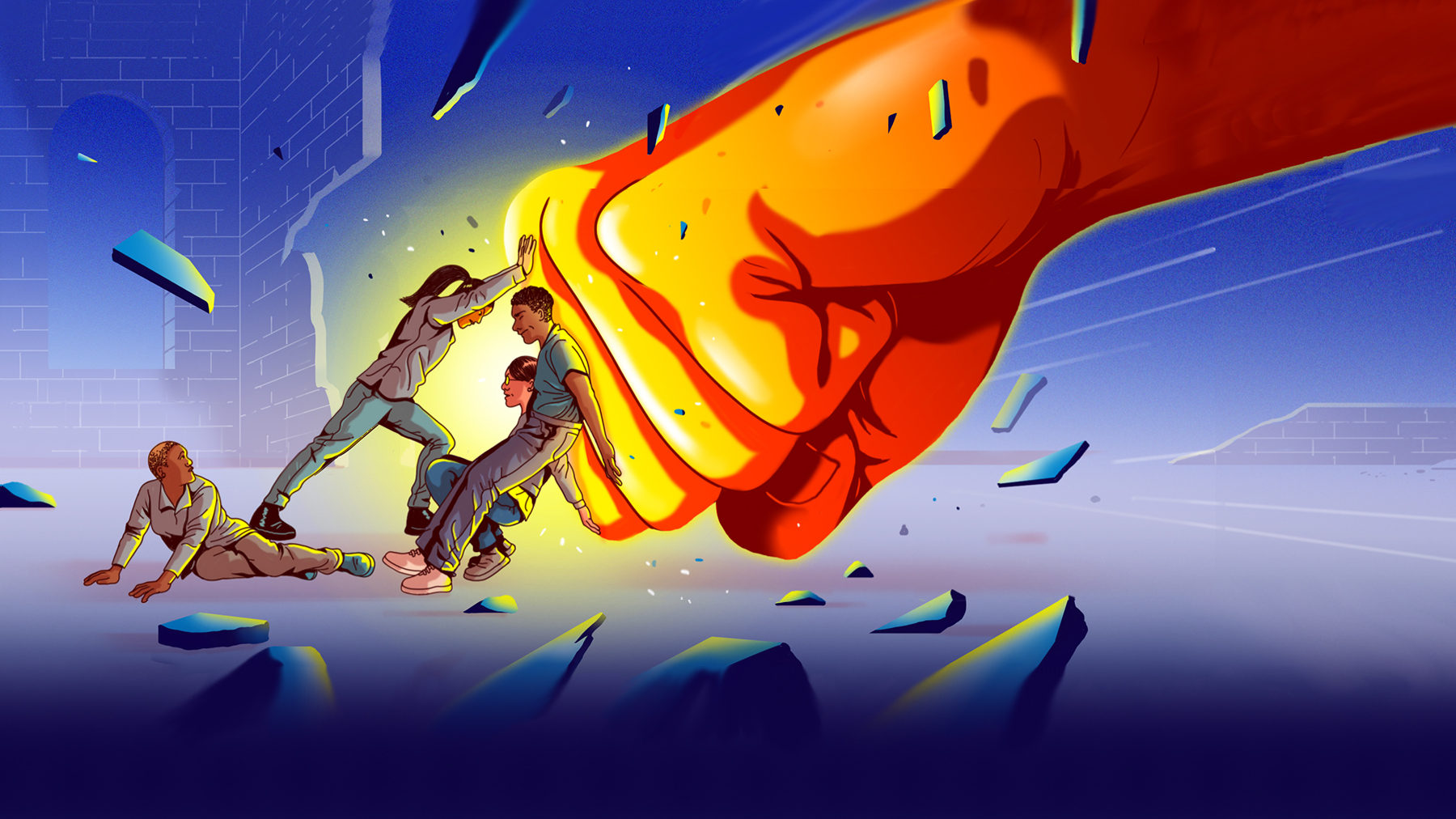The Season 3 premiere of the Southern Poverty Law Center’s Sounds Like Hate podcast reveals how new anti-voter laws like Georgia’s SB 202 create barriers to voting not only for voters of color, new voters and young voters but also for a less widely known, impacted group: Americans with disabilities.
The new episode – “Collateral Damage” – that was released this week can be found here.
This season of Sounds Like Hate – hosted and produced by award-winning independent journalists Jamila Paksima and Yvonne Latty – will examine the lives of people who too often have difficulty being accepted for who they are and who, despite decades of civil rights battles and triumphs, are forced to continue struggling for the equal rights and protections promised to all Americans.
In the first episode of the new season, disability rights activist Lee Jones explains the barriers to voting that the new Georgia law creates for people with disabilities.
“My reason for doing an absentee ballot: I cannot stand in a line for hours without sitting down,” Jones says. “I have chronic pain from my conditions that will prevent me from standing in line for hours on end. I do have to have some kind of hydration because of the medication that I take, I get dry mouth a lot. And just mentally and emotionally, standing in a line for hours, being in pain, being thirsty ….”
By making it more difficult and burdensome to vote absentee and by making it illegal to provide food or water to voters waiting in line, Georgia’s SB 202 targets people with disabilities like the ones Jones has. The law also makes it less likely that she and others in her situation will have their voices heard at the ballot box.
Gaylon Tootle, another grassroots activist, comments on state lawmakers’ attempts to diminish the voices of people with disabilities.
“The evilness of it all,” says Tootle, who has a vision impairment. “Who sits around and thinks about whether or not a person can get a snack or a drink of water?”
More than 2.1 million people in Georgia – about one in four – have disabilities. In 2020, 74% of voters with disabilities used mail-in ballots or voted early in person. SB 202 targets these voting methods by restricting early voting in runoff elections, creating barriers to voting by mail and drop boxes, and making it illegal to provide water or food to those waiting in long lines.
The SPLC and other civil rights groups sued the state in March in federal court, arguing that SB 202 violates the Americans with Disabilities Act. Among the clients in that litigation is The Arc Georgia, a disability rights organization that works to empower its members to participate in the democratic process.
“I was surprised to learn that one in four Americans live with a disability, according to the CDC,” Paksima said. “This is why providing fair and barrier-free access to vote, no matter what their party affiliation, is a vital right and underreported story.”
Latty added: “The people I met reporting in Georgia were inspiring. They won’t let hate win, and it’s up to all of us to support them and hear their voices. At times, driving through rural Georgia, seeing the persistent segregation and oppression, and being told that those beautiful tall trees were the sites of lynchings, I got lost in sadness of what has been endured in past generations. I met amazing people who because of their race or the disability they have will struggle even harder to cast a vote because of voter suppression laws like SB 202, yet they won’t give in.”
In the next episode of Sounds Like Hate, the hosts will expose the alarming vigilante activity of far-right militia groups operating along the Arizona/Mexico border.
Sounds Like Hate is produced by Until 20, LLC, for the SPLC.
Illustration by Glenn Harvey



